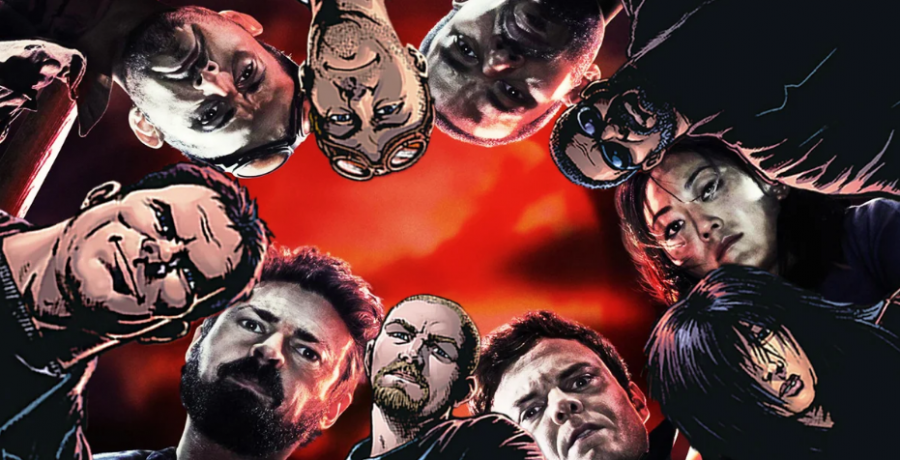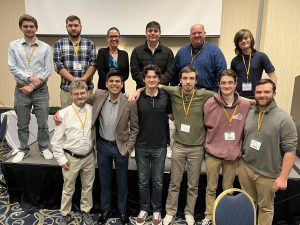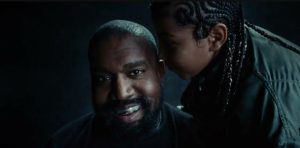‘The Boys’: The World’s Worst Heroes
The “Boys” standing side by side with their comic counterpart.
September 9, 2019
If you’re like me and own an Amazon Prime account then you may have noticed that you can watch various T.V. shows at a click of a button.
One of the shows that rose to the top of the queue, distinguishing itself from the 6.5/10 anime and the HBO documentaries from the 90’s, was “The Boys.”
A gritty take on a superhuman society, “The Boys” exists in a world where the few humans gifted by superpowers defend the masses and battle crime. However, not everything is sunshine and rainbows.
The Heroes are aggressively marketed and monetized, corruption is widespread and those with powers can get away with anything they want, as long as they smile for the cameras and maintain a good public image.
Hughie Campbell, a mild-mannered twenty-something year old, life spirals out of control when his girlfriend is accidentally killed by a superhero taking an uncontrollable performance enhancing drug. Shortly thereafter, Campbell has a chance encounter with a mysterious thug claiming to work for the FBI named Butch and after some coaxing, decides to go after his girlfriend’s killer and destroy the system with reckless abandon for laws of morality.
It’s dark and twisted beyond any gag from a “Deadpool” film, it is an intriguing and likable story with a tight group of densely written characters and it’s eight episodes long with no moments wasted.
“The Boys” isn’t without it’s share of annoyances. It has the same problem every American drama has; no one ever explains anything to each other. It makes sense for our group of crooks to be secretive about their activities, but on more than one occasion, Butch (the leader) will straight up disappear to pursue a lead towards a mutually beneficial goal, without informing his comrades. Butch gets in his own way by not letting his teammates in on useful information.
On it’s own, this wouldn’t be that bad of a problem, but an early episode has Butch give a comically cheesy and moderately self-aware speech about teamwork while he compares his teammates to The Spice Girls. The “Lone Wolf” attitude Butch keeps up after that scene kind of clashes with the internal logic of the series.
“The Boys” is also an adaptation of a comic book from 2006, so it runs into the problems that plague every superhero film; everything is different. I haven’t read more than a few pages of the comic, but you can expect that Amazon made mass-marketing decisions to fit the story into a screenplay. However, it makes sense that the story would be different in 2019.
Being a celebrity nowadays is different than it was in 2006. With the constant presence of social media, anyone with a verified Twitter account has a permanent mark on their back. Keeping up your reputation as a superhero is more threatening than any villain could ever hope to be, and this show knows that.
It’s kind of hard to get a read on the motivations of any character in a particular scene. Campbell and company are straightforward and likable, but the antagonists have a serious case of cognitive dissonance. I don’t want to spoil too much, but it’s hard to make a morally-grey character sympathetic when they will throw away their relationships for the tiniest advantage.
Maybe the show is trying to show us that these characters are hypocrites (which they are), but it’s still incomprehensible in it’s current state. Maybe the comic did it better since it wasn’t crammed into an eight-hour run time.
Despite it’s flaws, I found myself absorbed by “The Boys,” and as a man whose entertainment mostly comes from obscure indie games, arthouse films, and 6.5/10 anime, this show managed to get my attention and hold it all the way through.






